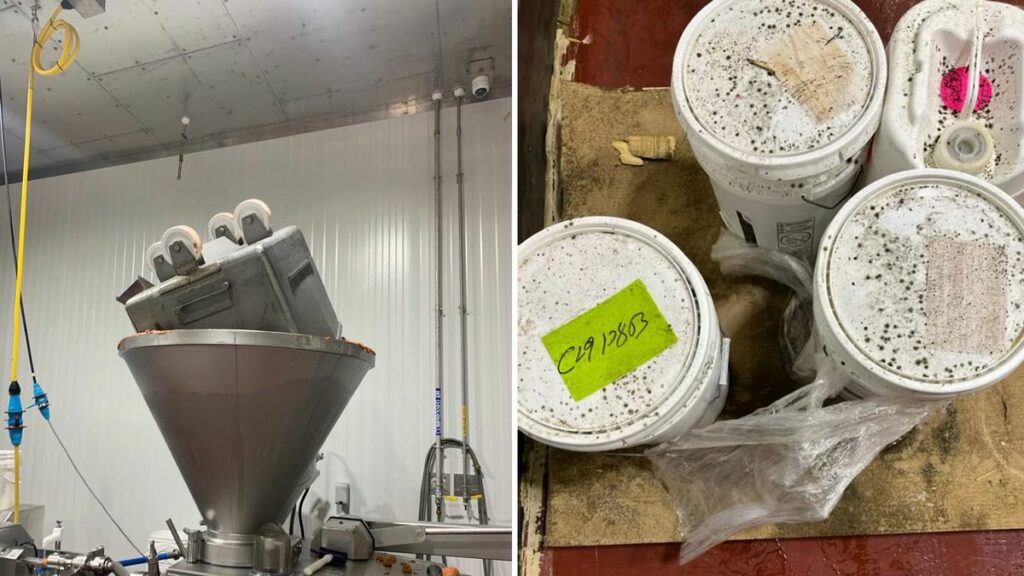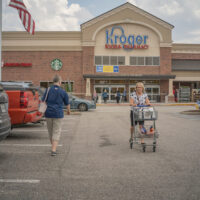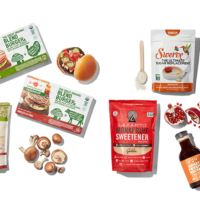
Image Credit: Bloomberg
Every week we track the business, tech and investment trends in CPG, retail, restaurants, agriculture, cooking and health, so you don’t have to. Here are some of this week’s top headlines.
And this week, we are excited to announce launch of our new podcast in partnership with AgFunder: New Food Order, a nuanced investigation into the business of tackling our climate and social crises through food and agriculture. Read all about why we launched the podcast and check out our first two episodes:
#1: Introducing: New Food Order
#2: Is the world better with your business in it? With Paul Polman, former CEO of Unilever
And be sure to subscribe and share!
After becoming the world’s second approved cultivated meat, Vow raked in a record-setting $49.2 million to bring its cultivated quail to Singapore.
Meanwhile, the latest news on Beyond Meat has stirred trouble for the plant-based meat sector. Photos and internal documents from its plant in Pennsylvania show mold, unsafe use of equipment and other food-safety issues at a factory the company had expected to play a major role in its future. In late July, the company laid off 200 of its employees and several of its chief executives departed. Investors are now debating whether Beyond Meat’s struggles are specific to the company or a harbinger of deeper issues in the plant-based meat industry.
After Infarm announced its successful trials of wheat grown in its indoor vertical farm, critics questioned the viability of growing such a commodity crop at scale indoors. The news sparked a conversation around the realities of vertically-farmed commodities.
Our newsletter takes a lot of time and resources to produce. Make a one time or monthly contribution to help us keep it going. Whether it’s $5 or $500, every bit helps and shows us that you value our work.
1. Australia: Vow Sets a Funding Record Ahead of Becoming the World’s Second Approved Cultivated Meat Brand – Green Queen
Vow has closed a record-setting $49.2m round to help bring its cultivated quail meat to Singapore. It expects approval from Singapore to begin selling its cultivated meat in restaurants later this year.
2. VCs Dish on Why Food Tech Investment Was So Light in Q3, While SAVRpak Bags Freshness Deal with Jüsto – TechCrunch
Both investment values and count were down 63% and 28.5% quarter-over-quarter, respectively. Despite the decline, the investors have a positive outlook on what the next generation of businesses can bring in terms of taste, consumer trust, and brand experience.
3. Beyond Meat Is Struggling, and the Plant-Based Meat Industry Worries – New York Times
A few years ago, business was booming. That growth has slowed, with some wondering if the number of consumers has reached its limit.
4. Beyond Meat Plant’s Dirty Conditions Revealed in Photos, Documents – Bloomberg
Products from the plant tested positive for Listeria on at least 11 occasions during the second half of last year and the first half of 2022. The facility in Pennsylvania illustrates the alt-meat maker’s ongoing difficulties.
5. Germany: Infarm’s Indoor Wheat Suggests We Re-Examine the Realities of Vertically-Farmed Commodities – AFN
War and supply chain issues make indoor wheat an attractive concept. Can the vertical farming industry manage to grow that crop at scale?
6. Israel: Wilk Makes Yogurt Using Milk from Cultivated Cells – Food Dive
The Israeli company is the first to create a finished dairy product that has been produced by cells grown outside of an animal.
7. Australia: Food Tech Company Me& Has Developed the First Fortified Human Breast Milk – Green Queen
The company recently closed an oversubscribed $2.5m seed round. It’s the latest company to bring novel tech to the infant formula category.
8. China: The Untold Story of How Starbucks Has Cozied Up to the Communist Party in Pursuit of Explosive Growth – Fast Company
Starbucks says that China will become its biggest market by 2025. To get there, the company is contorting its values—and taking on significant risk.
9. Deliveroo Just Shut Down in Australia – Startup Daily
The company failed to gain traction and a path to profitability amid heavy competition from rivals such as Uber Eats, DoorDash and Menulog, alongside new competitors regularly entering the market.
10. Is Regenerative Agriculture the Future of Farming or the Next Greenwashing Fad? – Fast Company
To lower emissions, companies from Stonyfield Farms to Pepsi to Cargill are investing big money to change how farmers treat their soil. Can it succeed—or is it just an excuse to prevent more radical changes?
11. For Food Industry to Reach Climate Goals, COP27 Highlights Areas of Improvement – Food Dive
As companies work to improve sustainability goals, activist groups and world leaders call for more reductions in emissions and waste.





